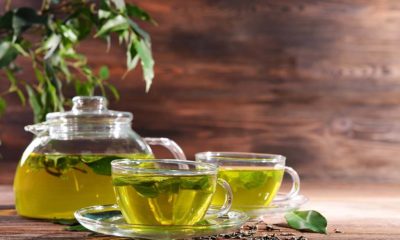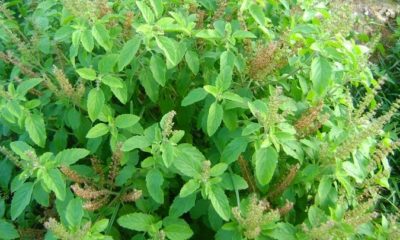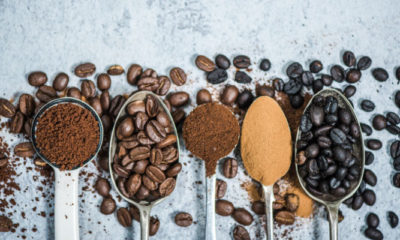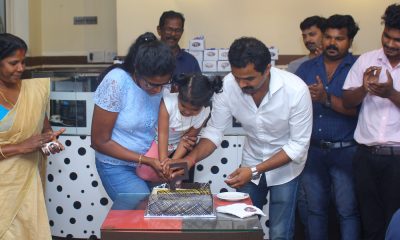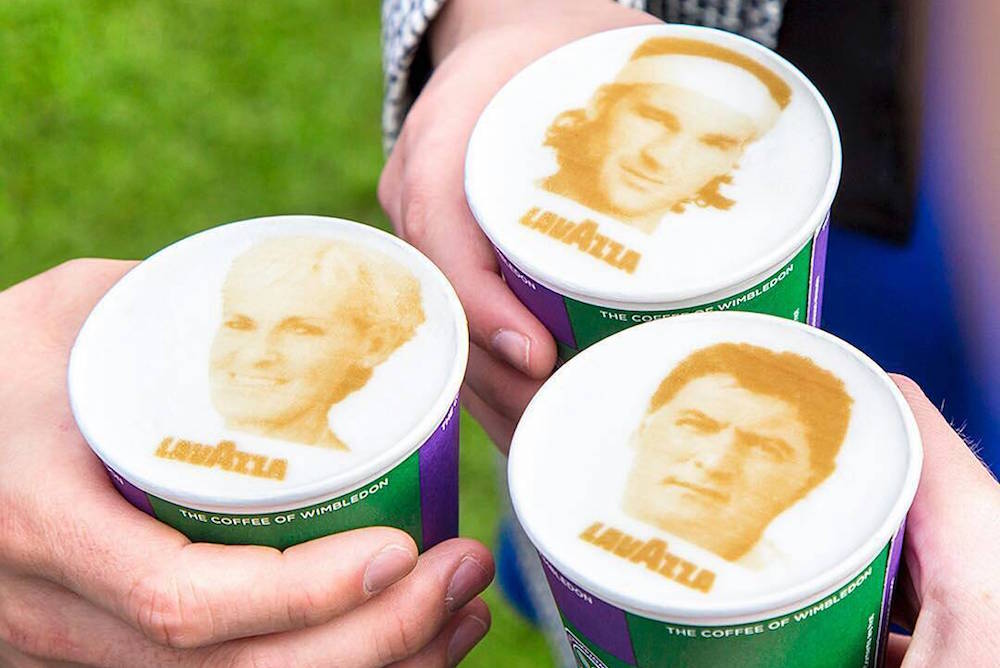Food
7 Dishes That You Thought Are Originally From India But Are Not
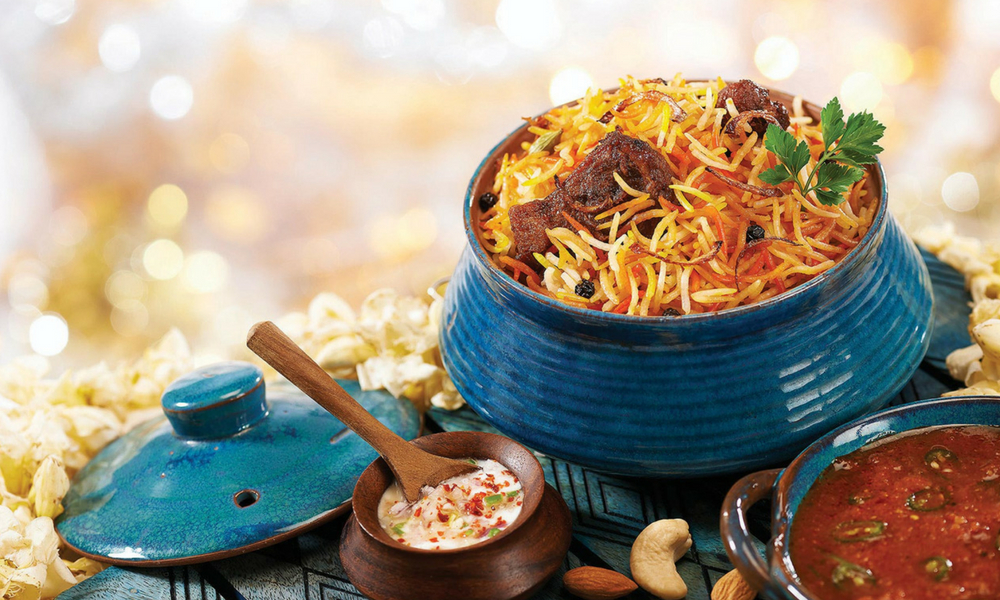
Know more about the origin and the gastronomic journey of these 7 popular and scrumptious food items to rewrite your understanding about the history of Indian cuisines
Text credits: Lakshmi Priya
India has always been known for its exquisite mouth-watering varieties of delicacies. For years, you have enjoyed, relished, and praised the taste of Indian delicacies. But there are some surprising facts behind your favourite dishes which you are probably unaware of. Read about the interesting stories behind the origin of seven popular dishes which you thought originated in India, but are from outside.
Biriyani
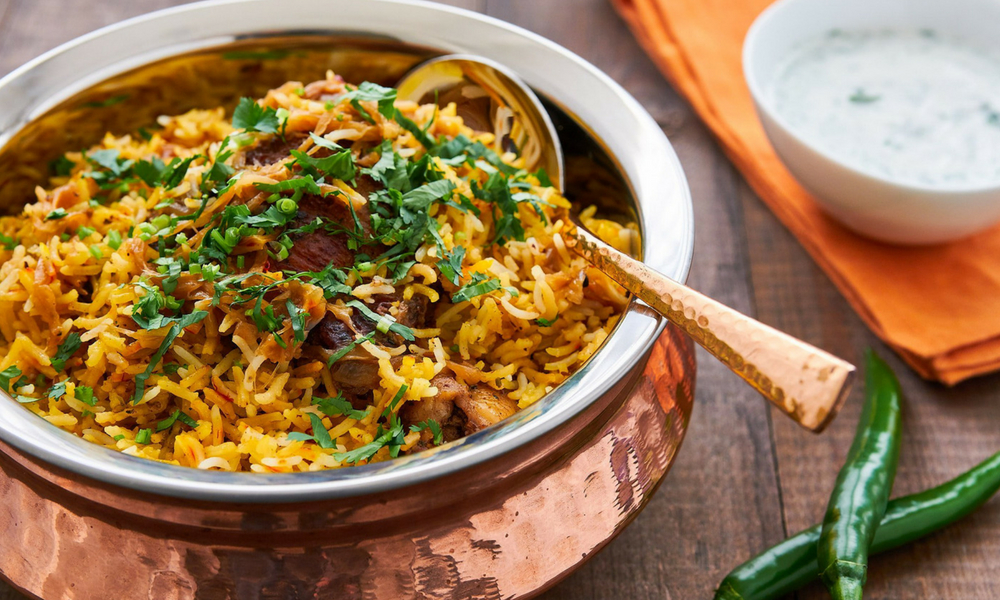
Image source: scoopwhoop.com
India’s all-time favourite delicacy Biriyani is not an Indian dish but originally from Persia. Between 1501-1736 in Persia, a dish named as Berian Pilao, a mixture of marinated lamb/chicken with herbs, spices, dry fruits and many more was made and served with steamed rice. There are several theories on how this rice and meat dish made it’s way to India. Most of the food historians believe that biriyani came to India through the Mughal invaders. It is also said that it was Mumtaz Mahal, the wife of Shahjahan who demanded the chef to prepare Biriyani as a nutritious food for the soldiers when she found them to be undernourished. Legends believe that Mughals redefined Berian Pilao into Biriyani by making certain changes in recipes and style of cooking. According to Prathibha Karan, the author of the book Biriyani, the dish was introduced to South India from pilaf varieties brought to the Indian subcontinent by Arab traders. Now, India has innumerable varieties of Biriyani named Thalassery Biriyani, Malabar Dum Biriyani, Hyderabadi Biriyani, etc.
Chai (Tea)
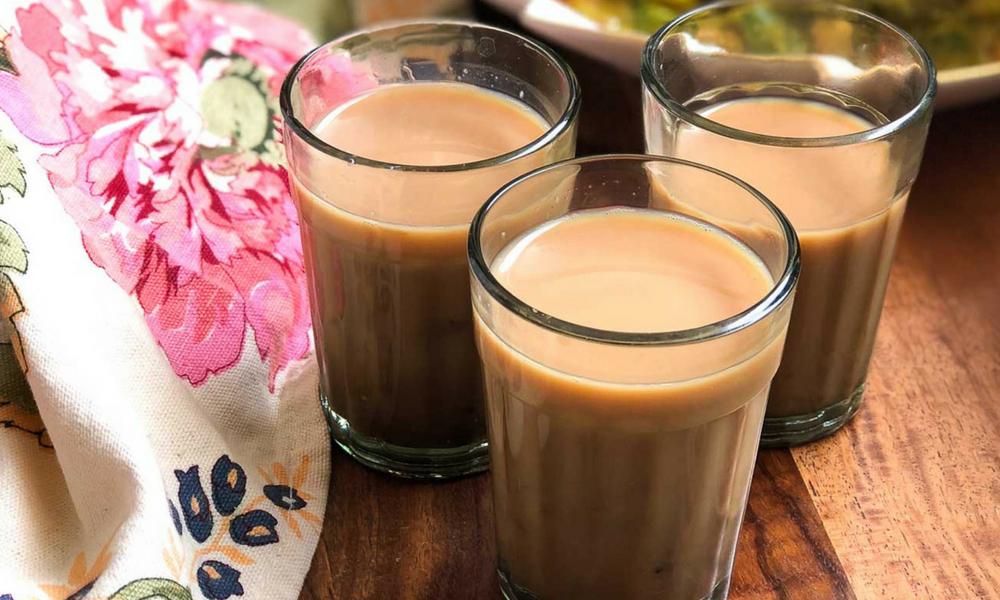
Image source: archanaskitchen.com
Chai (Tea), the saviour of Indians in the mornings and evenings is originally from China. While today, the over-consumption of the modern version of tea is considered to be unhealthy, the traditional small-leaf Chinese tea was used as a healthy drink by the people in China. It eventually garnered the attention of the British and became an international drink. Now, most of the countries have their own varieties of tea.
Kaapi (Coffee)
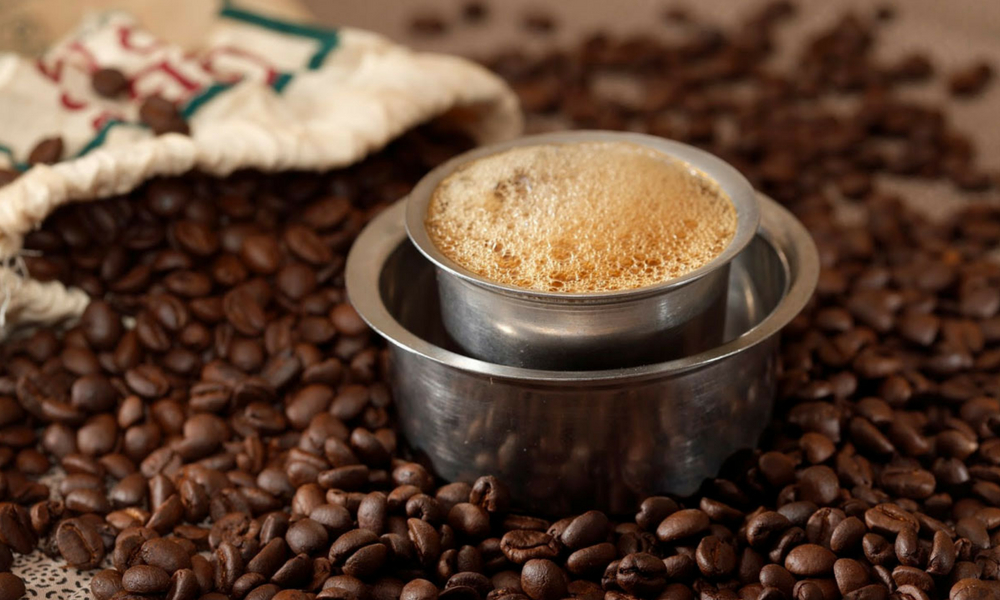
Image source: coffee.digital
Coming to Kaapi (Coffee), it was the people in Ethiopia who first recognised the energising factor of the coffee plant. But the tradition of roasting the coffee beans and brewing the coffee was begun in Yemen. It made its way into India through Baba Budan, who smuggled seven coffee seeds from the middle east to India and planted them at Mysore.
Samosa
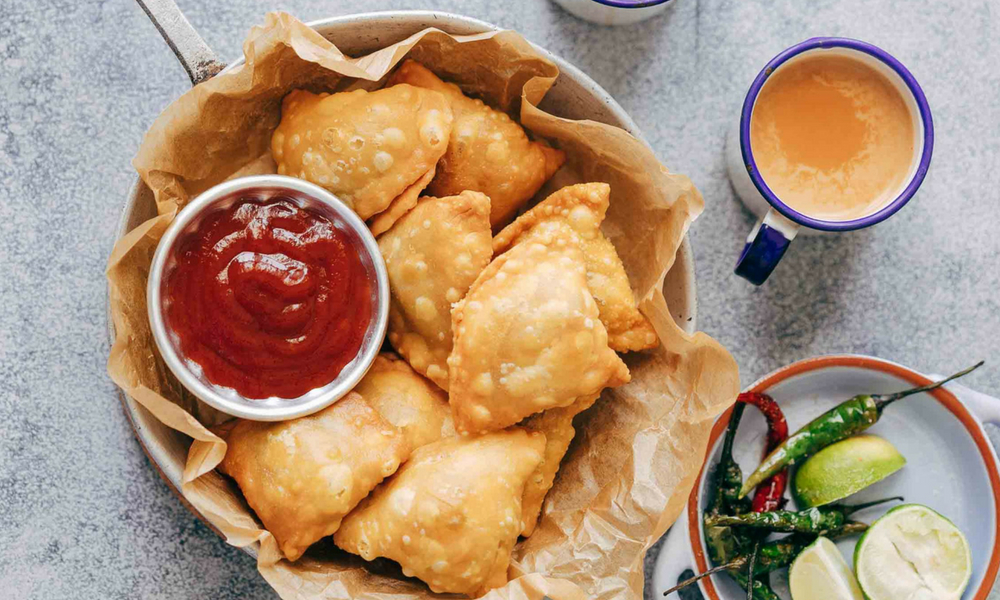
Image source: myfoodstory.com
The origin of Samosa, the most beloved tea-time snack of Indians is unfortunately not in India. The samosa was born in the Middle East and was known as ‘sanbosag’. Samosa was introduced to India by the middle east traders in the 13th and 14th centuries.
Jalebi
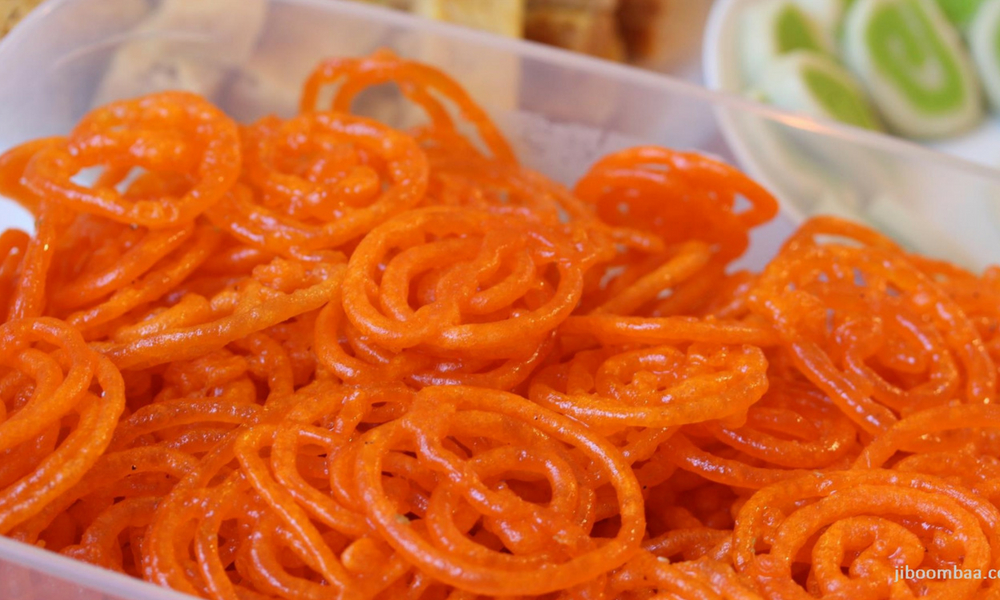
Image source: bestwebsiteinindia.com
The origin of Jalebi is from West Asia and was brought to Medieval India by Persian speaking Turkic invaders. It is believed that the word ‘Jalebi’ originated from the Arabic word zulabiya or the Persian word zolbiya. In the 15th century India, jalebi was known as Kundalika or Jalavallika.
Chicken Tikka Masala
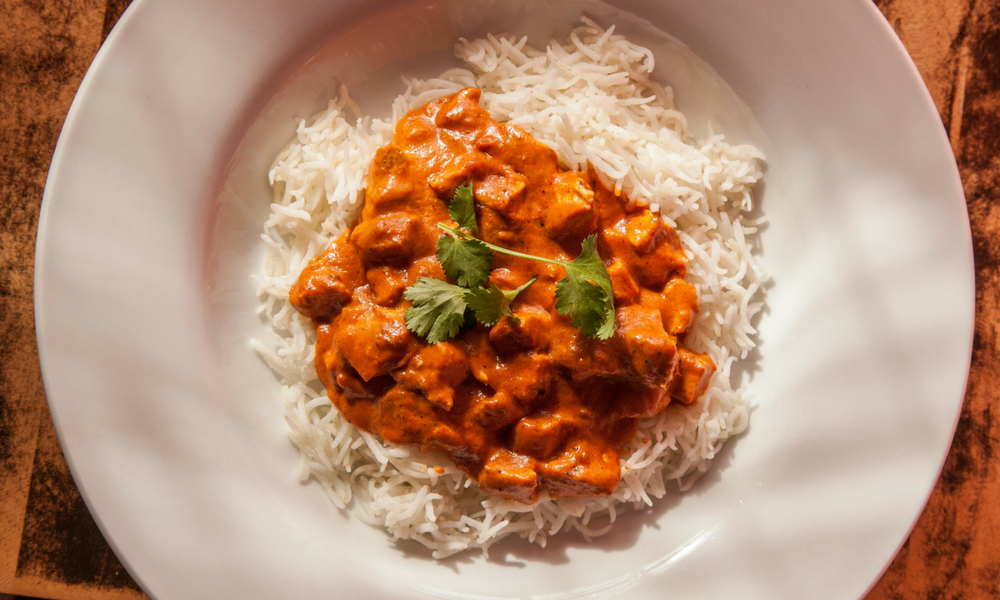
Image source: chowhound.com
Even though a majority of Indians believe Chicken Tikka Masala is from India, there are several disputes going on in the name of its origin. Chicken Tikka Masala, a dish of roasted marinated chicken in a spiced curry sauce is said to be a dish originated from Glasgow in Scotland. Contradicting this, the legends have also claimed its origin in the Punjab region of India. Chicken Tikka Masala is the national dish of the United Kingdom.
Idli
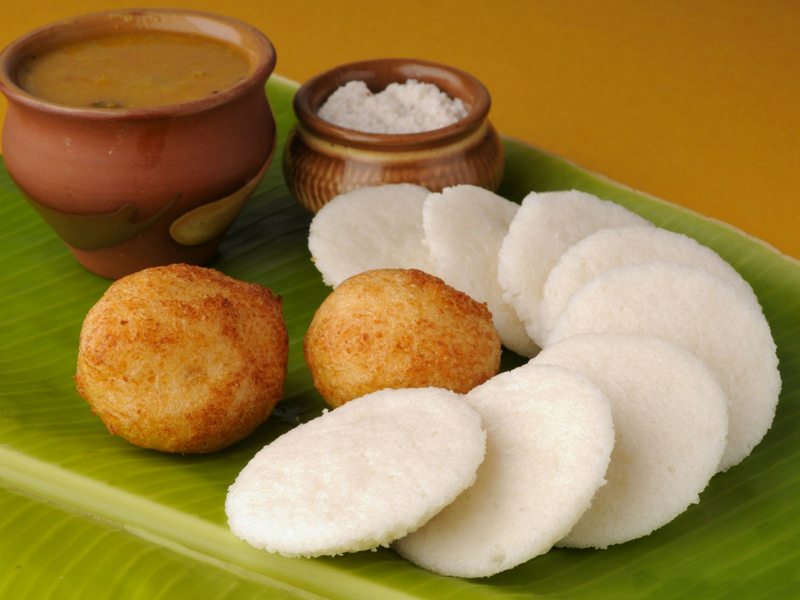
Image source: tasteofindiamelbourne.com
One of the common and favourite breakfasts of South Indians, Idli, a type of savoury rice cake, has its origin in Indonesia. According to food historian KT Achaya, the route of Idli to India was from Indonesia which is famous for a long tradition of fermented food. He speculates that the cooks of Hindu kings in Indonesian kingdoms might have invented this cake-like breakfast which was back then called as ‘Kedli’ there and brought to South India in 800-1200 CE. There are many more theories claiming the origin. But let’s be happy with this and eat our idlis.
Food
Coffee Pairing: Foods That Complement Your Morning Brew
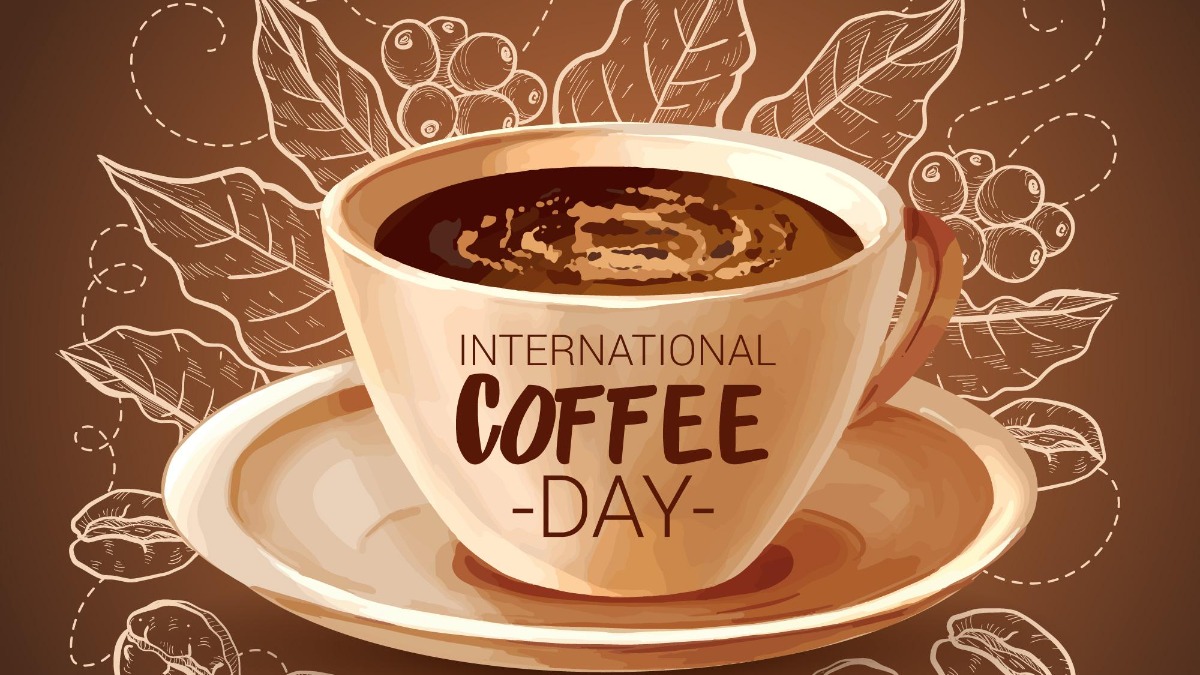
International Coffee Day is a celebration for coffee lovers around the world, offering the perfect opportunity to elevate your morning coffee experience by pairing it with the right foods. While we often focus on how we brew our coffee, the right food pairing can make a world of difference, enhancing the flavors and aromas of your favorite cup of joe. Let’s dive into some delightful coffee and food pairings that will make your mornings even more enjoyable.
1. Espresso & Dark Chocolate

If you’re an espresso enthusiast, pairing this bold and concentrated coffee with dark chocolate is a match made in heaven. The richness of the chocolate complements the intensity of the espresso, balancing its bitterness while enhancing its deep, earthy notes. Try a square of dark chocolate with 70% cocoa to elevate your espresso experience.
2. Latte & Croissants

For a softer and creamier start to the day, a latte paired with a buttery croissant is a classic combination. The mild and frothy nature of the latte contrasts beautifully with the flaky, buttery layers of the croissant, offering a harmonious blend of textures and flavors.
3. Cappuccino & Almond Biscotti

Cappuccino, with its frothy milk and rich espresso base, pairs wonderfully with almond biscotti. The biscotti’s crunchy texture and subtle sweetness complement the coffee’s bold flavor, making this an ideal choice for those who enjoy dipping their snacks into their coffee.
4. Cold Brew & Avocado Toast

For a modern and trendy breakfast, cold brew coffee pairs exceptionally well with avocado toast. The smooth, refreshing flavor of cold brew contrasts with the creamy, savory taste of avocado spread on toasted sourdough, creating a well-balanced and satisfying meal.
5. Americano & Blueberry Muffins

The subtle and smooth profile of an Americano pairs perfectly with a fruity blueberry muffin. The sweetness and slight tartness of the blueberries bring out the brighter, fruity notes in the coffee, while the muffin’s soft texture complements the light body of the Americano.
6. Mocha & Cinnamon Rolls

If you’re in the mood for something indulgent, pairing a mocha with a cinnamon roll will satisfy your sweet tooth. The chocolatey, rich flavor of the mocha mirrors the sweetness of the cinnamon roll’s glaze, while the spiced notes from the cinnamon add a layer of complexity to the pairing.
7. Flat White & Banana Bread

Flat whites are known for their smooth, velvety texture and strong espresso flavor, making them an excellent match for the moist, dense goodness of banana bread. The banana bread’s natural sweetness and subtle flavors work well to soften the intensity of the coffee, creating a balanced taste.
8. Turkish Coffee & Baklava

For a cultural twist, pair the bold, unfiltered flavors of Turkish coffee with the sweetness of baklava. The rich, syrupy layers of filo pastry filled with nuts and honey provide the perfect complement to the strong, concentrated coffee, creating a sensory experience that is both rich and satisfying.
9. Iced Coffee & Fresh Fruit Salad

On warmer days, an iced coffee goes well with a fresh fruit salad. The chilled, refreshing nature of iced coffee enhances the natural sweetness and juiciness of fruits like melons, berries, and citrus, making it a light and healthy pairing for a quick breakfast.
10. Macchiato & Cheese Danish

For those who enjoy a macchiato, the addition of a cheese Danish offers a creamy and slightly tangy balance to the intense espresso shot topped with just a bit of milk foam. The Danish’s soft, cheesy filling contrasts well with the strong coffee, making each bite more indulgent.
The beauty of coffee lies in its versatility, and with the right pairing, you can transform your morning coffee into a more elevated culinary experience. Whether you prefer something sweet or savory, there’s a perfect food match for every type of coffee. So, on this International Coffee Day, take a moment to experiment with different pairings and discover new flavors that enhance the joy of your morning brew.
Food
Benefits of Including Crab in your Diet
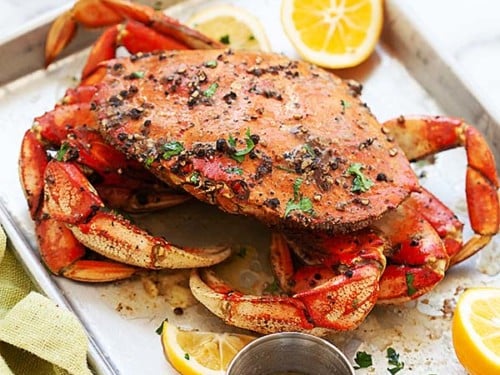
Crab has all the attraction of seafood without the fishy flavor that some people want to avoid. It is delightfully salty with a delicate mineral sweetness. Crabs were reportedly among the foods that coastal societies eaten a hundred years ago. On the menus of the greatest restaurants today, it stands out as the highlight dish. Crab is famous for its distinctive, exquisite flavor as well as for the health benefits it provides.
Omega-3 fatty acids and protein are abundant in crabs. The Food Experts advise two servings of fish and seafood every week, which is not difficult.
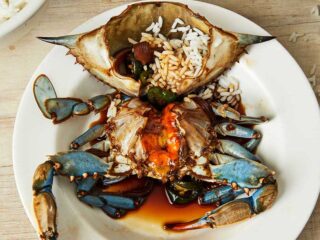
Good Protein Source
Crab is a low-fat, nutritious protein source that boosts metabolism and gives you energy. In reality, crab has less saturated fat and about the same amount of protein per 100 grams as other meats.
Strengthens Heart Health
Consuming a lot of crab meat can actually benefit your cardiovascular system. The Omega-3 fatty acids, zinc, and protein found in crab are all beneficial sources of lowering cholesterol. Having lower cholesterol lowers your chances of heart attacks and strokes.
Increases Brain Activity
Crabs are healthy for you since they are a high source of selenium, vitamin B2, copper, and other vital vitamins and minerals. Together with omega-3 fatty acids, these nutrients support healthy brain ageing and reduce the risk of dementia. They aid in defending against oxidative stress, inflammation, and other elements that may have an impact on the growth and health of the brain.
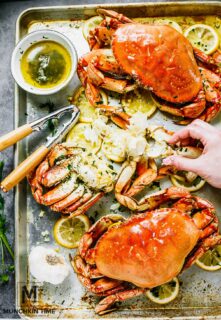
Strengthens bones
You may already be aware of the significance of calcium for bone health. However, did you realize that phosphorus plays an equal role? Due to its high phosphorus content, crab flesh can aid in the development of strong, healthy teeth and bones.
Contains selenium
Compared to other meats, crab offers a substantially higher supply of selenium. As an antioxidant, this necessary mineral not only assists in preventing cell damage from free radicals but also strengthens your immune system. Selenium aids in the regulation of your metabolism and is essential for healthy thyroid function.
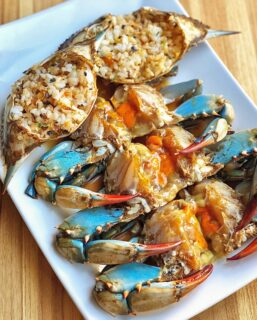
An aphrodisiac
The aphrodisiac property of crab meat promotes libido and sexual energy. They have high quantities of zinc and substances that increase estrogen and testosterone levels, enhancing sexual desire.
Makes the blood flow faster
Copper is yet another significant mineral present in crab meat. One significant advantage of copper is that it facilitates the body’s absorption of iron, which enhances the creation of red blood cells. After injuries and illnesses, proper circulation aids in the healing process.
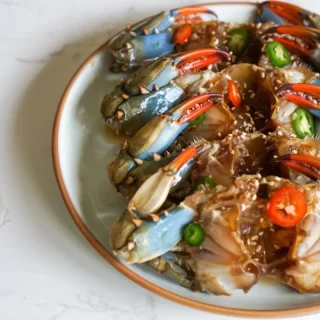
Consuming excessive amounts of crab can have certain unfavorable impacts, just like with most other foods. If you eat too much of some of the nutrients in crab, such copper and zinc, you could get sick. Crab, however, is a fairly nutritious item to eat in moderation unless you have a seafood allergy, and adverse effects are uncommon. Before consuming any seafood, always make sure you don’t have any allergies.
Food
The Taste Of Malayali Kitchen In Sweden
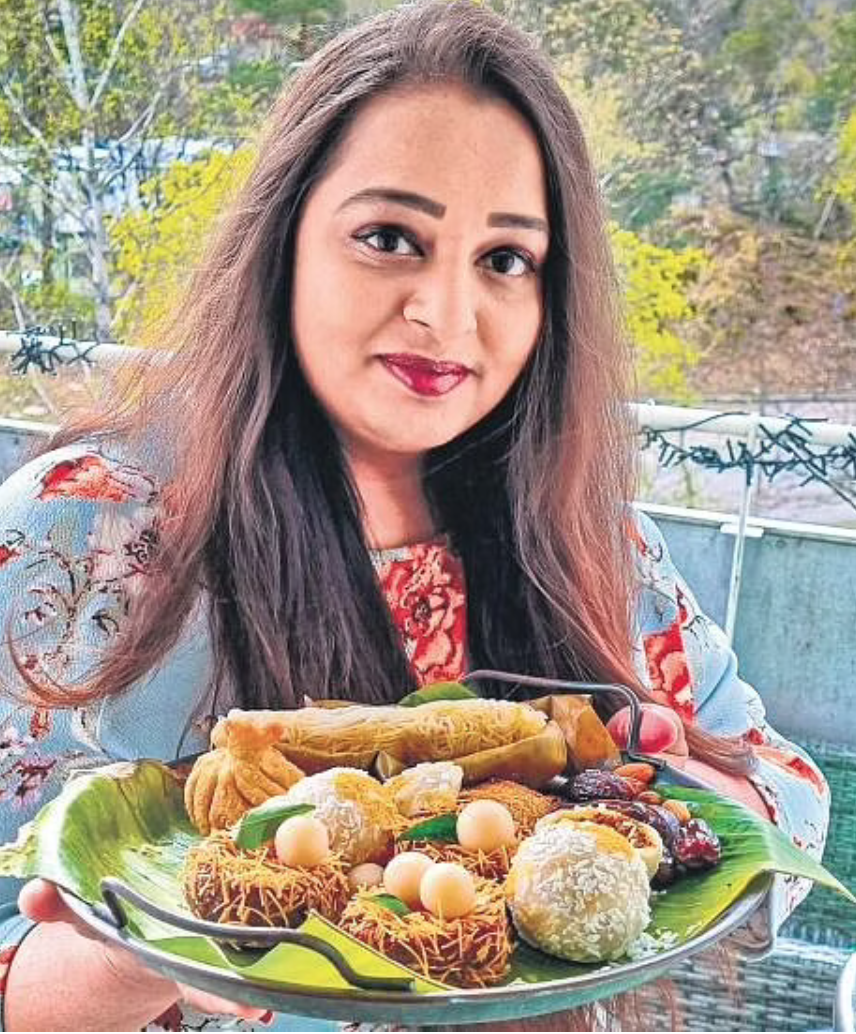
A Kochi-based malayali is creating a sensation by preparing Kerala Cuisine in the foreign swedish kitchen. Devi Nair, who has been settled in Sweden with her husband for almost 10 years, wanted her daughter to experience the delicacies of the Malyaali culture along with her International palette. The sense of homesickness and nostalgia has a part to play in this venture as well. In recent years, as the pandemic hit she chose to share her cooking extravaganzas on Instagram which led her to become more known to the public. Her recipes featured celebratory treats like the Bengali confection Rosbora, local parotta, and non-vegetarian Kerala foods that are popular on social media because they’re simple to make yet delicious to eat and look at. Devi whips up a storm of authentic Kerala delicacies during Malayali festivals. Tender, plump unniyappam, spongy kozhukkatta, rice dumplings, Vishu ada, and Vishu katta are just a few of the items on her Vishu menu this year. She prepared undaputtu with spicy prawn filling, kilikkoodu with meat and egg white, and ammini kozhukatta, a spicy rice dumpling, for Eid. It is also heard that she is planning to launch her own bakery in Sweden as well.
Words By : Goutham Satheesh
-

 Style11 months ago
Style11 months agoBridal Guide : Best Looks of Radhika Merchant Ambani
-

 Fashion1 year ago
Fashion1 year agoMost Discussed Ajrakh Saree of Alia Bhatt
-

 Entertainment1 year ago
Entertainment1 year agoThe Most Stylish Guests of Bhagya Suresh Reception
-

 Entertainment1 year ago
Entertainment1 year agoBridal Bliss : All Bridal Looks of Swasika Vijay
-
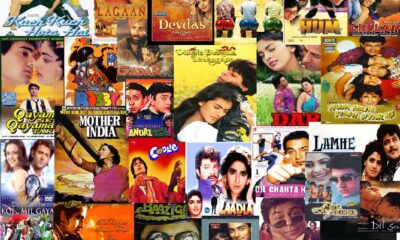
 Movies1 year ago
Movies1 year agoA Nostalgic Journey Through Love &Cinema : Best Bollywood Romantic 90s Movies
-

 AD8 months ago
AD8 months agoPopular Curtain Fabrics to Consider for Your Home
-

 Fashion1 year ago
Fashion1 year agoMajor Denim Trends You Need To Know in 2024
-

 Events9 months ago
Events9 months agoBest of Fashion Looks : Diya Krishna Wedding




